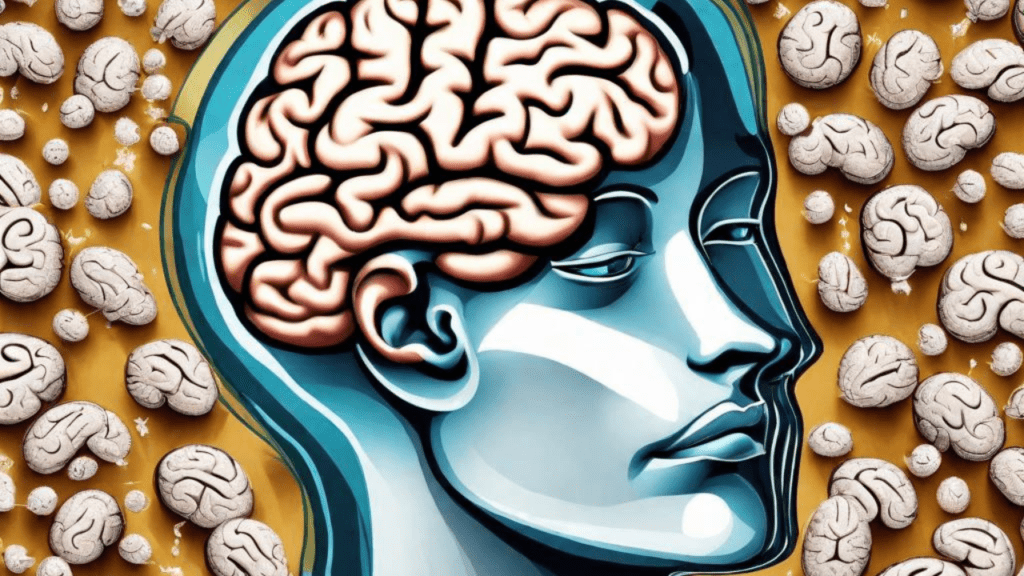
Introduction
Experiencing chest pain caused by gas can be both uncomfortable and alarming. While seeking professional medical advice for persistent or severe symptoms is crucial, several effective home remedies may provide relief for mild cases. Let’s first discuss the symptoms, followed by easy yet effective at-home remedies for relieving chest pain caused by gas.
Distinguishing Between Gas pain and cardiac
While gas pain and cardiac issues can both cause discomfort in the chest area, there are key differences to consider. Gas pain tends to be more localized in the abdomen and is often accompanied by bloating and cramping. It typically improves with belching or passing gas.
In contrast, cardiac-related chest pain is often described as pressure, squeezing, or tightness in the chest. It may radiate to the arms, neck, jaw, or back and is usually not relieved by belching or passing gas. Additionally, cardiac-related symptoms may be accompanied by other signs such as sweating, pale skin, or a sense of impending doom.
Seeking Medical Attention
If you experience chest pain or discomfort and are unsure whether it’s due to gas pain or a cardiac issue, it’s crucial to seek medical attention promptly. While gas pain is usually harmless, it’s always better to err on the side of caution, especially when dealing with matters concerning the heart
Symptoms of Chest Pain Due to Gas
- Sharp Pain and Discomfort in the Chest
- The most common symptom of chest pain due to gas is a sharp pain or discomfort in the chest area. It can be described as a stabbing sensation or a feeling of pressure in the chest. This pain is often mistaken for a heart attack, causing much anxiety and concern. However, chest pain due to gas typically subsides on its own or with the help of certain remedies.
- Feeling of Fullness and Bloating
- Gas accumulation in the digestive system can lead to a feeling of fullness and bloating in the chest. You may feel as if your stomach is swollen or distended. This sensation is uncomfortable and can sometimes even affect your appetite.
- Belching and Flatulence
- Excessive gas in the digestive system may cause frequent belching and flatulence. Burping and passing gas can provide temporary relief from the discomfort experienced in the chest. These symptoms are natural ways for the body to expel excess gas accumulated in the digestive system.
- Radiating Pain in the Back and Shoulders
- In some cases, chest pain due to gas may radiate to the back and shoulders. This can be attributed to the interconnectedness of nerves in the body. The pain can shift from the chest to the upper back, making it important to consider this symptom when assessing the cause of chest pain.
- Difficulty Breathing and Shortness of Breath
- Gas-related chest pain may also cause difficulty in breathing. You may experience shortness of breath, which can be distressing. It is essential to note that although this symptom can be alarming, it is typically a result of the discomfort caused by gas accumulation and not a serious cardiac or respiratory issue.
10 Effective Home Remedies
1. Peppermint Tea for Digestive Soothing

Peppermint has long been known for its digestive properties. Brewing a cup of peppermint tea can help relax the muscles in your gastrointestinal tract, easing the passage of gas and reducing chest pain caused by gas.
Making peppermint tea for chest pain caused by gas
| Ingredients | -Peppermint tea bags or fresh peppermint leaves -Boiling water |
| Steps to follow | -Boil water in a kettle or on the stove. -Place a peppermint tea bag or a handful of fresh leaves in a teapot or a cup. -Pour the boiling water over the tea bag or leaves. -Let it steep for 5-7 minutes to extract the flavour. -Remove the tea bag or strain out the leaves. -Optionally, add sweetener (like honey) or a slice of lemon if desired. -Stir and enjoy your refreshing peppermint tea! |
2. Ginger Infusions for Gas Relief

Ginger is a natural anti-inflammatory and can help in digestion. Prepare a ginger infusion by boiling fresh ginger slices in hot water. This soothing drink can promote the expulsion of gas and provide relief from chest pain caused by gas.
Making Ginger tea for chest pain caused by gas
| Ingredients | -Fresh ginger root (about 1 inch, sliced or grated) -1-2 cups of water -Honey or lemon (optional) |
| Instructions | -Peel and slice or grate the ginger root. -Boil 1-2 cups of water in a pot. -Add the sliced or grated ginger to the boiling water. -Let it simmer for about 5-10 minutes, depending on how strong you want the tea. -Strain the ginger pieces from the tea. -Optionally, add honey or lemon to enhance the flavour and add soothing properties. -Stir well and enjoy your ginger tea. |
3. Activated Charcoal Supplements

Activated charcoal is known for its ability to absorb gas in the digestive system. Taking activated charcoal supplements, following the recommended dosage, may help alleviate gas-related chest pain by reducing bloating.
4. Warm Compress for Muscle Relaxation
Applying a warm compress to your chest can help relax muscles and alleviate chest pain caused by gas. The heat promotes blood circulation, reducing tension and discomfort.
5. Fennel Seeds for Gas Dispersion
Chewing on fennel seeds or preparing fennel tea can effectively remedy gas-related chest pain. Fennel has carminative properties, which means it helps prevent the formation of gas and facilitates its expulsion.
Making of fennel tea
| Ingredients | -1 teaspoon of fennel seeds -1 cup of hot water -Optional: Honey or lemon for flavour |
| Instructions | -Crush the fennel seeds slightly to release their flavour. -Place the crushed fennel seeds in a cup. -Pour hot water over the fennel seeds. -Steep for about 5-10 minutes to allow the fennel flavour to infuse. -Strain out the fennel seeds or use a tea infuser. -Add honey or lemon if desired for flavour. -Stir, let it cool a bit, and enjoy your aromatic fennel tea. |
6. Lemon Water for Digestive Cleansing

Sipping on warm lemon water can stimulate digestion and help cleanse your digestive system. The acidity of lemons may also aid in breaking down gas, relieving chest pain.
Making of Lemon Water
| Ingredients: | -1 cup of warm water -Half a lemon |
| Instructions: | -Squeeze the juice of half a lemon into a cup. -Heat a cup of water to a warm, but not boiling, temperature. -Mix the lemon juice into the warm water. -You can optionally add some honey to make it sweeter. -Stir well and drink it on an empty stomach in the morning for digestive cleansing benefits. |
7. Chamomile Tea for Relaxation

Chamomile tea is well-known for its calming effects. Drinking chamomile tea can help relax the muscles in your digestive tract, reducing the intensity of chest pain caused by gas.
Making Chamomile Tea for chest pain caused by gas
| Ingredients | -Chamomile tea bag or loose chamomile flowers (1 teaspoon) -1 cup of hot water -Optional: Honey or lemon for flavour |
| Instructions | -Boil water and let it cool slightly for a minute. -Place the chamomile tea bag or loose flowers in a cup. -Pour the hot water over the chamomile. -Steep for 5 minutes, allowing the chamomile to infuse. -Remove the tea bag or strain out the loose flowers. -Add honey or lemon if desired for flavour. -Stir, let it cool a bit, and enjoy your soothing chamomile tea. |
8. Avoiding Trigger Foods(Major Reason for Chest Pain Caused by Gas)
Identify and avoid foods that commonly contribute to gas formation, such as carbonated beverages, beans, and cruciferous vegetables. Making dietary adjustments can prevent chest pain caused by gas.
List of Trigger Foods
| Acid Reflux / GERD: | Citrus fruits and juices Spicy foods Tomato-based products Chocolate Coffee and caffeinated beverages Fatty or fried foods |
| Migraines: | Aged cheeses Processed meats (like hot dogs and bacon) Chocolate Caffeine (excessive) Alcohol, especially red wine |
| Irritable Bowel Syndrome (IBS): | Certain vegetables (like cabbage, broccoli, and onions) Legumes (beans and lentils) Dairy products Fatty foods Artificial sweeteners |
| Inflammatory Bowel Disease (IBD): | Spicy foods Dairy products High-fibre foods (especially during a flare-up) Fatty foods Nuts and seeds |
| Joint Pain / Arthritis: | Nightshade vegetables (tomatoes, eggplants, peppers) Red meat Processed foods High-fat dairy products Fried foods |
9. Papaya Enzymes for Improved Digestion

Papaya contains enzymes like papain that aid in digestion. Enzymes are the unsung heroes of our digestive system, facilitating the breakdown of food into absorbable nutrients. Among these, Papain and Chymopapain in papayas stand out for their remarkable digestive properties.
These enzymes assist in breaking down proteins, ensuring your body can extract maximum nutrition from the foods you consume.
Superior Protein Digestion
Papaya Enzymes excel at breaking down complex proteins, enhancing the efficiency of your digestive process. This not only prevents the discomfort associated with indigestion but also aids in the absorption of essential amino acids, promoting overall health and vitality
10. Elevating Your Upper Body While Sleeping
If you experience gas-related chest pain at night, try elevating your upper body by using an extra pillow. This position can help prevent acid reflux and minimize chest discomfort.
Conclusion
While these home remedies can relieve mild cases of gas-related chest pain, it’s crucial to note that a healthcare professional should evaluate persistent or severe symptoms. Incorporating these remedies into your routine, along with lifestyle modifications, may contribute to a more comfortable and symptom-free life
FAQ Frequently Ask Questions
Q1: What causes chest pain due to gas?
A1: Chest pain caused by gas can result from the build-up of excess gas in the digestive system. This can be caused by swallowing air, certain dietary choices, or issues with digestion.
Q2: How can I differentiate between gas-related chest pain and more serious conditions?
A2: Gas-related chest pain often feels like sharp, stabbing discomfort and may be accompanied by bloating or belching. However, if you’re unsure or if the pain is severe and persistent, it’s crucial to seek medical attention to rule out more serious conditions like heart issues.
Q3: What are some effective home remedies for gas-related chest pain?
A3: Peppermint Tea: Peppermint can help relax the muscles of the gastrointestinal tract, easing gas discomfort.
Activated Charcoal: Known for its gas-absorbing properties, activated charcoal may help alleviate gas-related chest pain. Before utilising any drug regularly, speak with a medical expert.
• Ginger Tea: Ginger might help with gas relief and digestion. Prepare a cup of ginger tea by steeping fresh ginger in hot water.
• Simethicone: Over-the-counter products containing simethicone can help break down gas bubbles in the digestive system.
Q4: How can I prevent gas-related chest pain?
A4: Chew Food Thoroughly: Properly chewing food reduces the amount of air swallowed. Avoid Trigger Foods: Identify and avoid foods that commonly cause gas, such as beans, cabbage, and carbonated drinks.
• Regular Exercise: Physical activity can aid digestion and reduce the likelihood of gas build-up.
Q5: When should I seek medical attention for chest pain?
A5: If you’re uncertain about the cause of chest pain. If pain is severe, prolonged, or accompanied by other symptoms like shortness of breath, nausea, or radiating pain to the arm or jaw.
Q6: Can lifestyle changes help manage gas-related chest pain?
A6: Yes, adopting a healthy lifestyle can make a difference. Maintain a balanced diet, stay hydrated, exercise regularly, and practice stress-reducing techniques.
Q7: Is it advisable to use antacids for gas-related chest pain?
A7: Antacids may help neutralize stomach acid, but they may not be as effective for gas. Before utilising any drug regularly, speak with a medical expert.
Remember, these FAQs are general guidelines, and individual responses may vary. It’s critical to speak with a medical expert for tailored guidance based on your unique health circumstances..If you have any questions please free to contact us
Related Topic
A Holistic Approach of Diet and Exercise to Reduce Belly Fat




